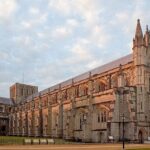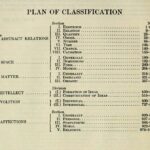![]()
An excellent recent pamphlet contains important new discoveries regarding this hymn. The music and Latin words appear to have been written by John Francis Wade; at least, the three earliest known manuscripts dating from about 1750 are in his handwriting and signed by him.
The first printing of the words is in The Evening Office of the Church, in Latin and English; UTS. The words of Adeste Fideles in Latin and English are on the thirteenth unnumbered page in the ‘Troses” section, after p. 322. The English translation starts: ”Draw near ye faithful Christians, With Joy to Bethlehem come.” No indication of authorship.
The music first appeared in An Essay on the Church Plain Chant edited by Samuel Webbe (London, 1782) at p. xiii, together with the Latin words; BM. The standard English translation commencing “O come all ye faithful,” was made by Frederick Oakeley in 1852 and first appeared in print in A Hymnal for Use of the English Church (London, 1852) on p. 26; BM. He had made a previous translation in 1841.
The hymn is frequently known as the “Portuguese Hymn,” perhaps because Wade had made a copy for the use of the English College at Lisbon. The Latin words have sometimes been ascribed to St. Bonaventura in the thirteenth century or to an unnamed German or French poet in the seventeenth century.
The music has also been ascribed to a Portuguese composer, Marcus Portogallo, and even to King John IV of Portugal. There is little evidence to support any of these claims. However, Vincent Novello said that John Reading, an Englishman, composed the melody in 1780 and this possibility cannot be ruled out.
Wade was born about 1710 and became a copier of plainchant and other music at Douay College, France, a great CathoHc center; he died in 1786 at the age of seventy-five. Oakeley was born in London in 1802, was ordained priest in the Church of England and then received into the- Roman Church and made Canon of Westminster where he remained until his death in 1880.







